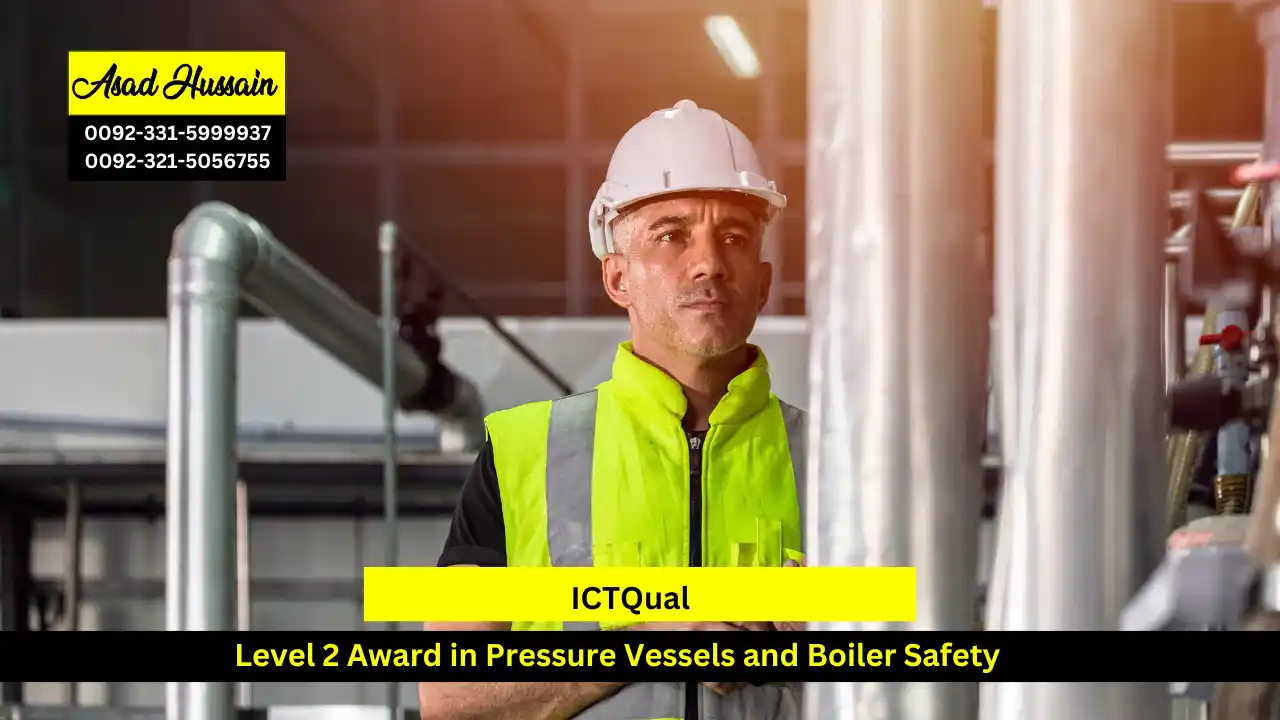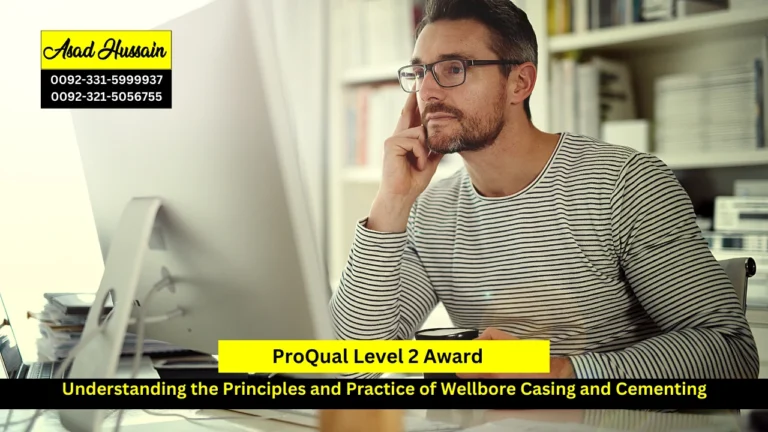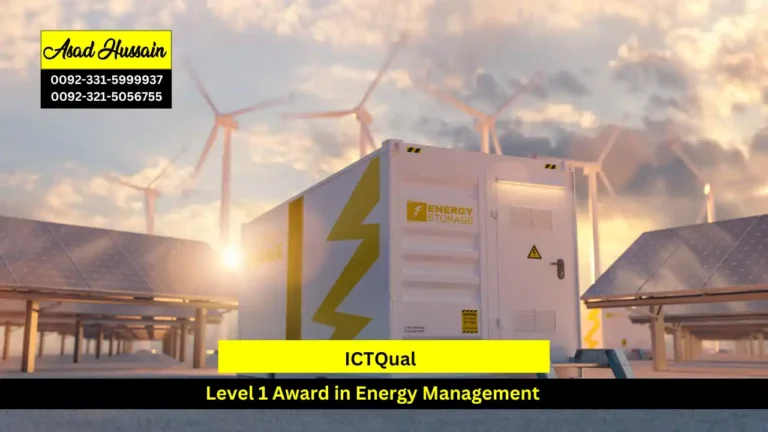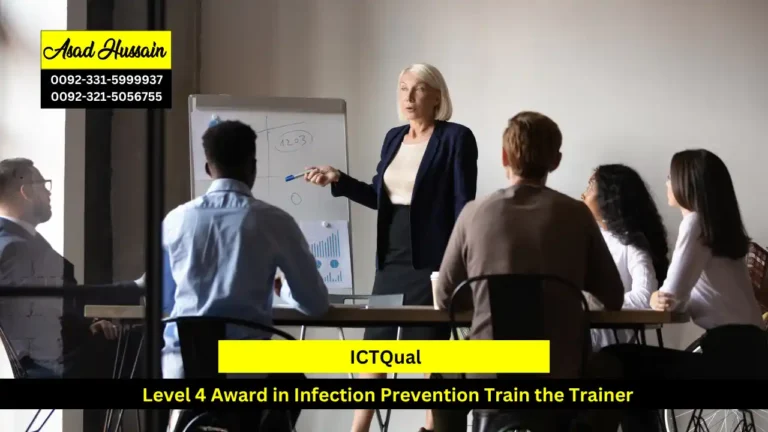In industries where pressure vessels and boilers are critical components, safety and efficiency are paramount. The Level 2 Award in Pressure Vessels and Boiler Safety is designed to address these needs by providing essential training for those working with these crucial systems. This qualification not only enhances the skills of professionals but also ensures adherence to safety regulations and best practices in managing pressure systems.
The Level 2 Award in Pressure Vessels and Boiler Safety is a comprehensive training program aimed at individuals responsible for the operation, maintenance, or supervision of pressure vessels and boilers. This qualification focuses on developing a solid foundation in the safe management and operation of these systems, which are prevalent in various industrial and commercial settings.
The Level 2 Award in Pressure Vessels and Boiler Safety is an essential certification for those working with pressure systems. It provides valuable training in safe operation, maintenance, and emergency response, making it a crucial step for enhancing workplace safety and efficiency. Whether you’re a technician, supervisor, or safety manager, this qualification offers significant benefits, helping you to manage pressure vessels and boilers with confidence and competence.
Program Highlights
Mandatory Units
- Advanced Technical Knowledge
- Regulatory Compliance and Standards
- Risk Management and Safety Strategies
- Emergency Response and Incident Investigation
- Advanced Inspection and Testing Methods
- Advanced Documentation and Compliance Management
- Safety Culture and Leadership
- Prospective participants must have successfully completed the Level 1 Award in Pressure Vessels and Boiler Safety or an equivalent foundational course. This ensures that participants have a solid understanding of the basic principles, regulations, and practices related to pressure vessel and boiler safety, providing a strong foundation for advanced learning.
- While there are typically no specific educational prerequisites, participants are expected to have a background in engineering or a related field. This could include qualifications such as a bachelor’s degree in mechanical engineering, chemical engineering, or a similar discipline. A foundational understanding of engineering principles, thermodynamics, and materials science is beneficial for comprehending the advanced concepts covered in the Level 2 Award.
- While not mandatory, participants with relevant work experience in industries where pressure vessels and boilers are utilized may find the course content more relatable and applicable to their professional roles. Experience in roles such as engineering, maintenance, operations, or safety management within industries such as manufacturing, energy, petrochemicals, or facilities management can provide valuable context and practical insights.
- Since the course is conducted in English, proficiency in the English language is essential to comprehend course materials, participate in discussions, and complete assessments effectively.
- Basic technical skills, including proficiency in using computers, conducting data analysis, and understanding mathematical concepts, are beneficial for successfully completing the course requirements.
Advanced Technical Knowledge:
- Demonstrate a thorough understanding of the technical principles behind pressure vessels and boilers, including their design, operation, and maintenance requirements.
- Identify and describe the various types of pressure vessels and boilers, their components, and their operational functions.
- Apply advanced technical knowledge to troubleshoot and resolve complex issues related to pressure systems.
Regulatory Compliance and Standards:
- Interpret and apply relevant safety regulations and industry standards related to pressure vessels and boiler operation.
- Evaluate compliance with legal requirements and industry standards, ensuring that all practices meet regulatory expectations.
- Prepare and maintain documentation to demonstrate adherence to safety and compliance standards.
Risk Management and Safety Strategies:
- Conduct comprehensive risk assessments to identify potential hazards associated with pressure vessels and boilers.
- Develop and implement effective safety strategies and risk management plans to mitigate identified risks and enhance safety practices.
- Analyze and review safety performance and make recommendations for continuous improvement in safety procedures.
Emergency Response and Incident Investigation:
- Develop and execute emergency response plans for potential incidents involving pressure vessels and boilers, including emergency shutdown procedures.
- Investigate and analyze incidents to determine root causes and implement corrective actions to prevent recurrence.
- Communicate findings and recommendations from incident investigations to relevant stakeholders and update safety protocols accordingly.
Advanced Inspection and Testing Methods:
- Utilize advanced inspection techniques and testing methods to assess the condition and performance of pressure vessels and boilers.
- Interpret inspection and test results to make informed decisions regarding maintenance, repairs, and replacements.
- Ensure that inspection and testing procedures are conducted in accordance with industry standards and best practices.
Advanced Documentation and Compliance Management:
- Maintain accurate and comprehensive records related to pressure vessel and boiler operations, maintenance, and compliance.
- Implement and manage documentation systems to ensure that all records are up-to-date and accessible for audits and inspections.
- Ensure that all documentation meets regulatory requirements and supports effective compliance management.
Safety Culture and Leadership:
- Promote and foster a positive safety culture within the organization by leading by example and encouraging safe practices.
- Develop and deliver training and awareness programs to enhance safety culture and ensure that all employees understand their roles in maintaining safety.
- Provide leadership and support to drive safety initiatives and cultivate a proactive approach to safety management.
The Level 2 Award in Pressure Vessels and Boiler Safety is designed for professionals who are directly involved in the operation, maintenance, or oversight of pressure systems. This includes technicians who work hands-on with pressure vessels and boilers, supervisors responsible for ensuring safe practices and compliance, and safety managers tasked with upholding regulatory standards and promoting a culture of safety. Additionally, the course is ideal for those seeking to advance their careers in industrial safety, enhance their technical expertise, and contribute to the effective management of pressure systems in various industrial and commercial settings.







